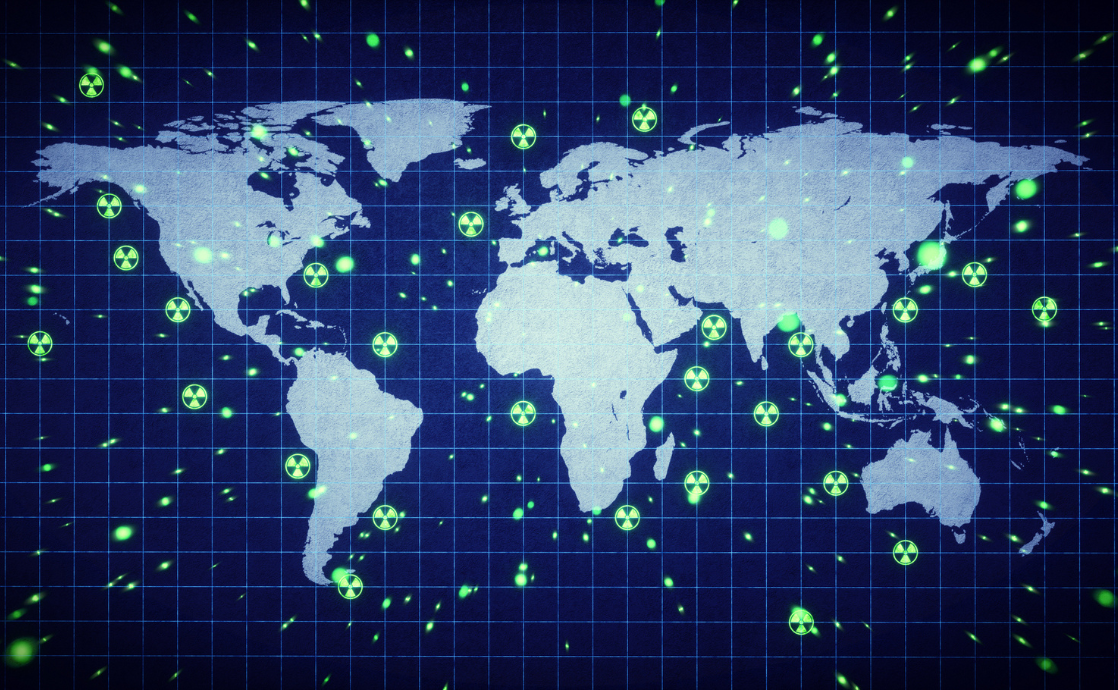The contemporary world grapples with an escalating nuclear threat that permeates international relations, public discourse, and personal consciousness. Many individuals and communities seek guidance on navigating these perilous waters. The Bahá’í teachings provide a unique framework for understanding not only the implications of nuclear proliferation but also the pathways to a more peaceful and harmonious future. This article explores actionable insights from the perspective of Bahá’í principles, emphasizing the importance of unity, education, and active engagement in the face of existential peril.
1. Understanding the Bahá’í Perspective on Peace
Central to Bahá’í teachings is the notion of peace as an inherent right and necessity for humanity’s survival. Bahá’u’lláh, the founder of the faith, emphasized that true peace cannot be merely the absence of war but must involve the unfurling of justice, cooperation, and mutual understanding among nations. Nuclear weapons epitomize the ultimate manifestation of discord that can obliterate human life. Thus, the urgency to forge a collective consciousness around peace becomes paramount.
2. Unity as a Fundamental Principle
Unity is a recurring theme within Bahá’í writings, asserting that humanity, irrespective of national, racial, or religious distinctions, forms a single entity. The proliferation of nuclear arms serves as a stark reminder of humanity’s fragmented state. To combat this menace, individuals and nations must strive toward unity, fostering a collaborative spirit to disarmament efforts. Encouraging dialogue between nations and creating inclusive platforms for discussion can help catalyze this process.
3. The Role of Education
Education stands as a crucial pillar in the Bahá’í approach to addressing the nuclear threat. Knowledge acts as a precursor to informed decision-making and active citizenship. Comprehensive education about the existential risks posed by nuclear weapons can empower individuals to advocate for disarmament and sustainability. Such educational initiatives should encompass global history, the scientific ramifications of nuclear proliferation, and the ethical dimensions of warfare. Programs that promote critical thinking, ethical reflection, and interdisciplinary approaches will nurture a generation equipped to tackle these global challenges.
4. The Importance of International Governance
The Bahá’í teachings advocate for the establishment of a global governance system that transcends national interests. Effective international governance frameworks are essential for regulating nuclear capabilities and preventing conflict. The United Nations and dedicated non-proliferation treaties underscore the importance of collaborative oversight. A Bahá’í-inspired paradigm would not only assert the need for such institutions but would also envision a restructured global order founded on equitable principles. Advocating for reforms and supporting multilateral treaties that aim to minimize nuclear arsenals can galvanize this transformation.
5. Promoting Spiritual Awakening
Addressing the nuclear threat necessitates a profound spiritual awakening among individuals worldwide. Bahá’í teachings hinge on the belief that the moral imperatives of humanity are interlinked with the health of our planet. A spiritual resurgence that prioritizes values such as compassion, stewardship, and interdependence can inspire collective action. Community initiatives that promote these principles can ignite a grassroots movement aimed at influencing policy and public opinion on disarmament.
6. Grassroots Mobilization and Activism
Active participation in grassroots movements serves as a potent response to the nuclear threat. Engaging with local organizations and global coalitions advocating for nuclear disarmament is a tangible way to contribute to this cause. Bahá’í communities can harness their resources and networks to cultivate advocacy campaigns, focusing on legislative reforms that promote peace and non-proliferation. Mobilizing public sentiment will also demonstrate the collective desire for disarmament, compelling leaders to enact change.
7. The Role of Personal Conduct
Each individual’s conduct possesses the potential to enact world change. The Bahá’í teachings underscore the significance of integrating ethical considerations into daily actions. By embodying virtues such as honesty, integrity, and empathy, individuals can influence the societal climate surrounding the nuclear issue. Leading by example fosters a culture that values peace and collective responsibility, ultimately contributing to disarmament efforts on a larger scale.
8. The Interaction of Science and Spirituality
The Bahá’í faith recognizes the synergy between scientific inquiry and spiritual development. Addressing the nuclear threat requires not only political activism but also scientific innovation. Encouraging collaborative research endeavors that explore peaceful applications of nuclear technology can shift the narrative from fear to constructive discourse. Interdisciplinary partnerships between scientists, ethicists, and policymakers will pave the way for sustainable technological advancement that prioritizes human welfare over military might.
9. Strengthening Global Solidarity
In an increasingly interconnected world, fostering a culture of global solidarity is imperative. Bahá’í teachings exhort individuals to see beyond their immediate communities and recognize the shared destiny of humanity. Initiatives that celebrate cultural exchange and understanding can dissolve barriers, illuminating the collective stakes involved in nuclear disarmament. Emphasizing that violence does not yield a sustainable future may inspire nations to collaboratively pursue alternative methods of conflict resolution.
10. Conclusion: A Collective Awakening Towards Disarmament
The peril posed by nuclear weapons necessitates a holistic approach that incorporates Bahá’í principles of unity, education, and active engagement. By inspiring a collective awakening towards disarmament and peace, communities can pave the way for a harmonious existence. The path forward requires not only an understanding of the intricate dynamics at play but also a commitment to forging a present and future devoid of the specter of annihilation. It is through unwavering effort and collaborative spirit that the dream of a nuclear-free world may take root and flourish.
